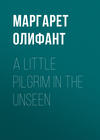Buch lesen: «The Athelings», Seite 10
CHAPTER XXIV.
GOING HOME
Driving slowly along while the coachman ruminated, Agnes and Marian, in awe and astonishment, looked in each other’s faces—then they put up their hands simultaneously to their faces, which were a little heated with the extreme confusion, embarrassment, and wonder of the last two hours—lastly, they both fell into a little outburst of low and somewhat tremulous laughter—laughing in a whisper, if that is possible—and laughing, not because they were very merry, but because, in their extreme amazement, no other expression of their sentiments occurred to them. Were they two enchanted princesses? and had they been in fairyland?
“Oh Agnes!” exclaimed Marian under her breath, “what will mamma say?”
“I do not think mamma can be angry,” said Agnes, who had gained some courage, “for I am sure we could not help ourselves. What could we do?—but when they see us coming home like this—oh May!”
There was another pause. “I wonder very much what she has written. We have never heard of her,” said Marian, “and yet I suppose she must be quite a great author. How respectful Mr Burlington was! I am afraid it will not be good for you, Agnes, that we live so much out of the world—you ought to know people’s names at least.”
Agnes did not dispute this advantage. “But I don’t quite think she can be a great author,” said the young genius, looking somewhat puzzled, “though I am sure she was very kind—how kind she was, Marian! And do you think she really wants us to go on Thursday? Oh, I wonder what mamma will say!”
As this was the burden of the whole conversation, constantly recurring, as every new phase of the question was discussed, the conversation itself was not quite adapted for formal record. While it proceeded, the magnificent coachman blundered towards the unknown regions of Islington, much marvelling, in his lofty and elevated intelligence, what sort of people his mistress’s new acquaintances could be. They reached Bellevue at last by a grievous roundabout. What a sound and commotion they made in this quiet place, where a doctor’s brougham was the most fashionable of equipages, and a pair of horses an unknown glory! The dash of that magnificent drawing-up startled the whole neighbourhood, and the population of Laurel House and Buena Vista flew to their bedroom windows when the big footman made that prodigious assault upon the knocker of Number Ten. Then came the noise of letting down the steps and opening the carriage door; then the girls alighted, almost as timid as Susan, who stood scared and terror-stricken within the door; and then Agnes, in sudden temerity, but with a degree of respectfulness, offered, to the acceptance of the footman, a precious golden half-sovereign, intrusted to her by her mother this morning, in case they should want anything. Poor Mrs Atheling, sitting petrified in her husband’s easy-chair, did not know how the coin was being disposed of. They came in—the humble door was closed—they stood again in the close little hall, with its pegs and its painted oil-cloth—what a difference!—while the fairy coach and the magical bay-horses, the solemn coachman and the superb flunky, drove back into the world again with a splendid commotion, which deafened the ears and fluttered the heart of all Bellevue.
“My dears, where have you been? What have you been doing, girls? Was that Mr Burlington’s carriage? Have you seen any one? Where have you been?” asked Mrs Atheling, while Agnes cried eagerly, “Mamma, you are not to be angry!” and Marian answered, “Oh, mamma! we have been in fairyland!”
And then they sat down upon the old hair-cloth sofa beside the family table, upon which, its sole ornaments, stood Mrs Atheling’s full work-basket, and some old toys of Bell’s and Beau’s; and thus, sometimes speaking together, sometimes interrupting each other, with numberless corrections on the part of Marian and supplementary remarks from Agnes, they told their astonishing story. They had leisure now to enjoy all they had seen and heard when they were safe in their own house, and reporting it all to Mamma. They described everything, remembered everything, went over every word and gesture of Mrs Edgerley, from her first appearance in Mr Burlington’s room until their parting with her; and Marian faithfully recorded all her compliments to Hope Hazlewood, and Agnes her admiration of Marian. It was the prettiest scene in the world to see them both, flushed and animated, breaking in, each upon the other’s narrative, contradicting each other, after a fashion; remonstrating “Oh Agnes!” explaining, and adding description to description; while the mother sat before them in her easy-chair, sometimes quietly wiping her eyes, sometimes interfering or commanding, “One at a time, my dears,” and all the time thinking to herself that the honours that were paid to “girls like these!” were no such wonder after all. And indeed Mrs Atheling would not be sufficiently amazed at all this grand and wonderful story. She was extremely touched and affected by the kindness of Mrs Edgerley, and dazzled with the prospect of all the great people who were waiting with so much anxiety to make acquaintance with the author of Hope Hazlewood, but she was by no means properly surprised.
“My dears, I foresaw how it would be,” said Mrs Atheling with her simple wisdom. “I knew quite well all this must happen, Agnes. I have not read about famous people for nothing, though I never said much about it. To be sure, my dear, I knew people would appreciate you—it is quite natural—it is quite proper, my dear child! I know they will never make you forget what is right, and your duty, let them flatter as they will!”
Mrs Atheling said this with a little effusion, and with wet eyes. Agnes hung her head, blushed very deeply, grew extremely grave for a moment, but concluded by glancing up suddenly again with a little overflow of laughter. In the midst of all, she could not help recollecting how perfectly ridiculous it was to make all this commotion about her. “Me!” said Agnes with a start; “they will find me out directly—they must, mamma. You know I cannot talk or do anything; and indeed everybody that knew me would laugh to think of people seeing anything in me!”
Now this was perfectly true, though the mother and the sister, for the moment, were not quite inclined to sanction it. Agnes was neither brilliant nor remarkable, though she had genius, and was, at twenty and a half, a successful author in her way. As she woke from her first awe and amazement, Agnes began to find out the ludicrous side of her new fame. It was all very well to like the book; there was some reason in that, the young author admitted candidly; but surely those people must expect something very different from the reality, who were about to besiege Mrs Edgerley for introductions to “me!”
However, it was very easy to forget this part of the subject in returning to the dawn of social patronage, and in anticipating the invitation they had received. Mrs Atheling, too, was somewhat disappointed that they had made so little acquaintance with Mr Burlington, and could scarcely even describe him, how he looked or what he said. Mr Burlington had quite gone down in the estimation of the girls. His lady client had entirely eclipsed, overshadowed, and taken the glory out of the publisher. The talk was all of Mrs Edgerley, her beauty, her kindness, her great house, her approaching party. They began already to be agitated about this, remembering with terror the important article of dress, and the simple nature and small variety of their united wardrobe. Before they had been an hour at home, Miss Willsie made an abrupt and sudden visit from Killiecrankie Lodge, to ascertain all about the extraordinary apparition of the carriage, and to find out where the girls had been; and it did not lessen their own excitement to discover the extent of the commotion which they had caused in Bellevue. The only drawback was, that a second telling of the story was not practicable for the instruction and advantage of Papa—for, for the first time in a dozen years, Mr Atheling, all by himself, and solitary, was away from home.
CHAPTER XXV.
PAPA’S OPINION
Papa was away from home. That very day on which the charmed light of society first shone upon his girls, Papa, acting under the instructions of a family conference, hurried at railway speed to the important neighbourhood of the Old Wood Lodge. He was to be gone three days, and during that time his household constituents expected an entire settlement of the doubtful and difficult question which concerned their inheritance. Charlie, perhaps, might have some hesitation on the subject, but all the rest of the family believed devoutly in the infallible wisdom and prowess of Papa.
Yet it was rather disappointing that he should be absent at such a crisis as this, when there was so much to tell him. They had to wonder every day what he would think of the adventure of Agnes and Marian, and how contemplate their entrance into the world; and great was the family satisfaction at the day and hour of his return. Fortunately it was evening; the family tea-table was spread with unusual care, and the best china shone and glistened in the sunshine, as Agnes, Marian, and Charlie set out for the railway to meet their father. They went along together very happily, excited by the expectation of all there was to tell, and all there was to hear. The suburban roads were full of leisurely people, gossiping, or meditating like old Isaac at eventide, with a breath of the fields before them, and the big boom of the great city filling all the air behind. The sun slanted over the homely but pleasant scene, making a glorious tissue of the rising smoke, and brightening the dusky branches of the wayside trees. “If we could but live in the country!” said Agnes, pausing, and turning round to trace the long sun-bright line of road, falling off into that imaginary Arcadia, or rather into the horizon, with its verge of sunny and dewy fields. The dew falls upon the daisies even in the vicinity of Islington—let students of natural history bear this significant fact in mind.
“Stuff! the train’s in,” said Charlie, dragging along his half-reluctant sister, who, quite proud of his bigness and manly stature, had taken his arm. “Charlie, don’t make such strides—who do you think can keep up with you?” said Marian. Charlie laughed with the natural triumphant malice of a younger brother; he was perfectly indifferent to the fact that one of them was a genius and the other a beauty; but he liked to claim a certain manly and protective superiority over “the girls.”
To the great triumph, however, of these victims of Charlie’s obstinate will, the train was not in, and they had to walk about upon the platform for full five minutes, pulling (figuratively) his big red ear, and waiting for the exemplary second-class passenger, who was scrupulous to travel by that golden mean of respectability, and would on no account have put up with a parliamentary train. Happy Papa, it was better than Mrs Edgerley’s magnificent pair of bays pawing in superb impatience the plebeian causeway. He caught a glimpse of three eager faces as he looked out of his little window—two pretty figures springing forward, one big one holding back, and remonstrating. “Why, you’ll lose him in the crowd—do you hear?” cried Charlie. “What good could you do, a parcel of girls? See! you stand here, and I’ll fetch my father out.”
Grievously against their will, the girls obeyed. Papa was safely evolved out of the crowd, and went off at once between his daughters, leaving Charlie to follow—which Charlie did accordingly, with Mr Atheling’s greatcoat in one hand and travelling-bag in the other. They made quite a little procession as they went home, Marian half dancing as she clasped Papa’s arm, and tantalised him with hints of their wondrous tale; Agnes walking very demurely on the other side, with a pretence of rebuking her giddy sister; Charlie trudging with his burden in the rear. By way of assuring him that he was not to know till they got home, Papa was put in possession of all the main facts of their adventure, before they came near enough to see two small faces at the bright open window, shouting with impatience to see him. Happy Papa! it was almost worth being away a year, instead of three days, to get such a welcome home.
“Well, but who is this fine lady—and how were you introduced to her—and what’s all this about a carriage?” said Papa. “Here’s Bell and Beau, with all their good sense, reduced to be as crazy as the rest of you. What’s this about a carriage?”
For Bell and Beau, we are constrained to confess, had made immense ado about the “two geegees” ever since these fabulous and extraordinary animals drew up before the gate with that magnificent din and concussion which shook to its inmost heart the quiet of Bellevue.
“Oh, it is Mrs Edgerley’s, papa,” said Marian; “such a beautiful pair of bay horses—she sent us home in it—and we met her at Mr Burlington’s, and we went to luncheon at her house—and we are going there again on Thursday to a great party. She says everybody wishes to see Agnes; she thinks there never was a book like Hope. She is very pretty, and has the grandest house, and is kinder than anybody I ever saw. You never saw such splendid horses. Oh, mamma, how pleasant it would be to keep a carriage! I wonder if Agnes will ever be as rich as Mrs Edgerley; but then, though she is an author, she is a great lady besides.”
“Edgerley!” said Mr Atheling; “do you know, I heard that name at the Old Wood Lodge.”
“But, papa, what about the Lodge? you have never told us yet: is it as pretty as you thought it was? Can we go to live there? Is there a garden? I am sure now,” said Agnes, blushing with pleasure, “that we will have money enough to go down there—all of us—mamma, and Bell and Beau!”
“I don’t deny it’s rather a pretty place,” said Mr Atheling; “and I thought of Agnes immediately when I looked out from the windows. There is a view for you! Do you remember it, Mary?—the town below, and the wood behind, and the river winding about everywhere. Well, I confess to you it is pretty, and not in such bad order either, considering all things; and nothing said against our title yet, Mr Lewis tells me. Do you know, children, if you were really to go down and take possession, and then my lord made any attempt against us, I should be tempted to stand out against him, cost what it might?”
“Then, papa, we ought to go immediately,” said Marian. “To be sure, you should stand out—it belonged to our family; what has anybody else got to do with it? And I tell you, Charlie, you ought to read up all about it, and make quite sure, and let the gentleman know the real law.”
“Stuff! I’ll mind my own business,” said Charlie. Charlie did not choose to have any allusion made to his private studies.
“And there are several people there who remember us, Mary,” said Mr Atheling. “My lord is not at home—that is one good thing; but I met a youth at Winterbourne yesterday, who lives at the Hall they say, and is a—a—sort of a son; a fine boy, with a haughty look, more like the old lord a great deal. And what did you say about Edgerley? There’s one of the Rivers’s married to an Edgerley. I won’t have such an acquaintance, if it turns out one of them.”
“Why, William?” said Mrs Atheling. “Fathers and daughters are seldom very much like each other. I do not care much about such an acquaintance myself,” added the good mother, in a moralising tone. “For though it may be very pleasant for the girls at first, I do not think it is good, as Miss Willsie says, to have friends far out of our own rank of life. My dear, Miss Willsie is very sensible, though she is not always pleasant; and I am sure you never can be very easy or comfortable with people whom you cannot have at your own house; and you know such a great lady as that could not come here.”
Agnes and Marian cast simultaneous glances round the room—it was impossible to deny that Mrs Atheling was right.
“But then the Old Wood Lodge, mamma!” cried Agnes, with sudden relief and enthusiasm. “There we could receive any one—anybody could come to see us in the country. If the furniture is not very good, we can improve it a little. For you know, mamma–.” Agnes once more blushed with shy delight and satisfaction, but came to a sudden conclusion there, and said no more.
“Yes, my dear, I know,” said Mrs Atheling, with a slight sigh, and a careful financial brow; “but when your fortune comes, papa must lay it by for you, Agnes, or invest it. William, what did you say it would be best to do?”
Mr Atheling immediately entered con amore into a consideration of the best means of disposing of this fabulous and unarrived fortune. But the girls looked blank when they heard of interest and percentage; they did not appreciate the benefits of laying by.
“Are we to have no good of it, then, at all?” said Agnes disconsolately.
Mr Atheling’s kind heart could not resist an appeal like this. “Yes, Mary, they must have their pleasure,” said Papa; “it will not matter much to Agnes’s fortune, the little sum that they will spend on the journey, or the new house. No, you must go by all means; I shall fancy it is in mourning for poor old Aunt Bridget, till my girls are there to pull her roses. If I knew you were all there, I should begin to think again that Winterbourne and Badgely Wood were the sweetest places in the world.”
“And there any one could come to see us,” said Marian, clapping her hands. “Oh, papa, what a good thing for Agnes that Aunt Bridget left you the Old Wood Lodge!”
CHAPTER XXVI.
MRS EDGERLY’S THURSDAY
Mr Atheling’s visit to the country had, after all, not been so necessary as the family supposed; no one seemed disposed to pounce upon the small bequest of Miss Bridget. The Hall took no notice either of the death or the will which changed the proprietorship of the Old Wood Lodge. It remained intact and unvisited, dilapidated and picturesque, with Miss Bridget’s old furniture in its familiar place, and her old maid in possession. The roses began to brush the little parlour window, and thrust their young buds against the panes, from which no one now looked out upon their sweetness. Papa himself, though his heart beat high to think of his own beautiful children blooming in this retired and pleasant place, wept a kindly tear for his old aunt, as he stood in the chamber of her long occupation, and found how empty and mournful was this well-known room. It was a quaint and touching mausoleum, full of relics; and good Mr Atheling felt himself more and more bound to carry out the old lady’s wishes as he stood in the vacant room.
And then it would be such a good thing for Agnes! That was the most flattering and pleasant view of the subject possible; and ambitious ideas of making the Old Wood Lodge the prettiest of country cottages, entered the imagination of the house. It was pretty enough for anything, Papa said, looking as he spoke at his beautiful Marian, who was precisely in the same condition; and if some undefined notion of a prince of romance, carrying off from the old cottage the sweetest bride in the world, did flash across the thoughts of the father and mother, who would be hard enough to blame so natural a vision? As for Marian herself, she thought of nothing but Agnes, unless, indeed, it was Mrs Edgerley’s party; and there must, indeed, have been quite a moral earthquake in London had all the invitees to this same party been as much disturbed about it as these two sisters. They wondered a hundred times in a day if it was quite right to go without any further invitation—if Mrs Edgerley would write to them—who would be there? and finally, and most momentous of all, if it would be quite proper to go in those simple white dresses, which were, in fact, the only dresses they could wear. Over these girlish robes there was great discussion, and councils manifold; people, however, who have positively no choice, have facilities for making up their minds unknown to more encumbered individuals, and certainly there was no alternative here.
Another of these much discussed questions was likewise very shortly set to rest. Mrs Edgerley did write to Agnes the most affectionate and emphatic of notes—deeply, doubly underscored in every fourth word, adjuring her to “remember that I NEVER forgive any one who forgets my Thursday.” Nobody could possibly be more innocent of this unpardonable crime than Agnes and Marian, from whose innocent minds, since they first heard of it, Mrs Edgerley’s Thursday had scarcely been absent for an hour at a stretch; but they were mightily gratified with this reminder, and excited beyond measure with the prospect before them. They had also ascertained with much care and research the names of their new acquaintance’s works—of which one was called Fashion, one Coquetry, and one The Beau Monde. On the title-page of these famous productions she was called the Honourable Mrs Edgerley—a distinction not known to them before; and the girls read with devotion the three sets of three volumes each, by which their distinguished friend had made herself immortal. These books were not at all like Hope Hazlewood. It was not indeed very easy to define what they were like; they were very fine, full of splendid upholstery and elevated sentiments, diamonds of the finest water, and passions of the loftiest strain. The girls prudently reserved their judgment on the matter. “It is only some people who can write good books,” said Marian, in the tone of an indulgent critic; and nobody disputed the self-evident truth.
Meanwhile Mr Foggo continued to pay his usual visit every night, and Miss Willsie, somewhat curious and full of disapprovals, “looked in” through the day. Miss Willsie, who in secret knew Hope Hazlewood nearly by heart, disapproved of everything. If there was one thing she did not like, it was young people setting up their opinion, and especially writing books; and if there was one thing she could not bear, it was to see folk in a middling way of life aiming to be like their betters. Miss Willsie “could not put up with” Mrs Edgerley’s presumption in sending the girls home in her carriage; she thought it was just as much as taunting decent folk because they had no carriage of their own. Altogether the mistress of Killiecrankie was out of temper, and would not be pleased—nothing satisfied her; and she groaned in spirit over the vanity of her young protégés.
“Silly things!” said Miss Willsie, as she came in on the eventful morning of Thursday itself, that golden day; “do you really think there’s satisfaction in such vanities? Do you think any person finds happiness in the pleasures of this world?”
“Oh, Miss Willsie! if they were not very pleasant, why should people be so frightened for them?” cried Marian, who was carefully trimming, with some of her mother’s lace, the aforesaid white dress.
“And then we are not trying to find happiness,” said Agnes, looking up from her similar occupation with a radiant face, and a momentary perception of the philosophy of the matter. After all, that made a wonderful difference. Miss Willsie was far too Scotch to remain unimpressed by the logical distinction.
“Well, that’s true,” acknowledged Miss Willsie; “but you’re no to think I approve of such a way of spending your happiness, though ye have got it, ye young prodigals. If there is one thing I cannot endure, it’s countenancing the like of you in your nonsense and extravagance; but I’m no for doing things by halves either—Here!”
Saying which, Miss Willsie laid a parcel upon the table and disappeared instantly, opening the door for herself, and closing it after her with the briskest energy. There was not much time lost in examining the parcel; and within it, in a double wrapper, lay two little pairs of satin shoes, the whitest, daintiest, prettiest in the world.
Cinderella’s glass slippers! But Cinderella in the story was not half so much disturbed as these two girls. It seemed just the last proof wanting of the interest all the world took in this momentous and eventful evening. Miss Willsie, the general critic and censor, who approved of nothing! If it had not been for a little proper pride in the presence of Susan, who just then entered the parlour, Marian and Agnes would have been disposed for half a minute to celebrate this pleasure, in true feminine fashion, by a very little “cry.”
And then came the momentous duties of the toilette. The little white bedchamber looked whiter to-night than it had done all its days before, under the combined lustre of the white dresses, the white ribbons, and the white shoes. They were both so young and both so bright that their colourless and simple costume looked in the prettiest harmony imaginable with their sweet youth—which was all the more fortunate, that they could not help themselves, and had nothing else to choose. One of those useful and nondescript vehicles called “flies” stood at the door. Charlie, with his hat on, half laughing, half ashamed of his office, lingered in the hall, waiting to accompany them. They kissed Bell and Beau (dreadfully late for this one night, and in the highest state of exultation) with solemnity—submitted themselves to a last inspection on the part of Mrs Atheling, and with a little fright and sudden terror were put into the “carriage.” Then the carriage drove away through the late summer twilight, rambling into the distance and the darkness. Then at last Mamma ventured to drop into the easy-chair, and rest for a moment from her labours and her anxieties. At this great crisis of the family history, small events looked great events to Mrs Atheling; as if they had been going out upon a momentous enterprise, this good mother paused awhile in the darkness, and blessed them in her heart.



















